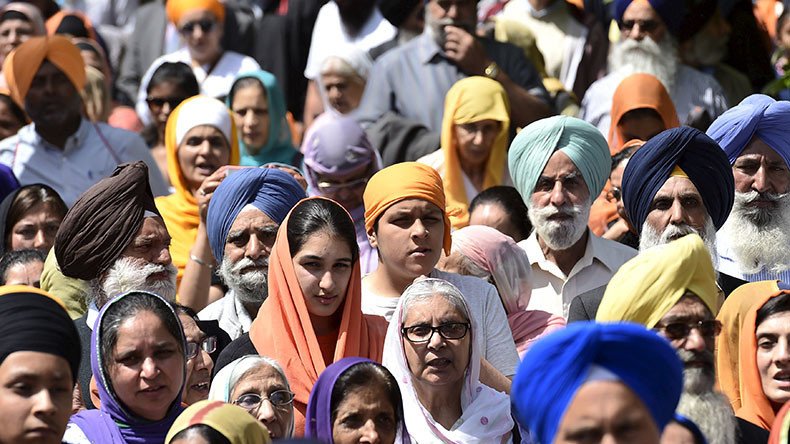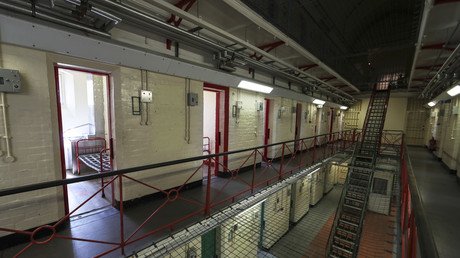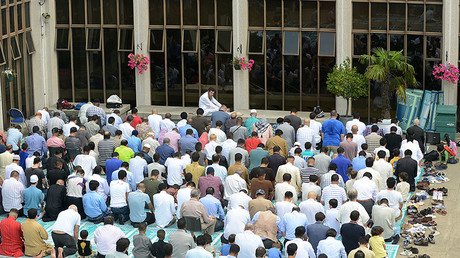‘It’s normal’: Attacks on minorities so frequent victims don’t even bother reporting them

Attacks on people who “appear to be Muslim” are so commonplace in the UK they are going unreported. Men and women who are Muslim, or appear to be, are targeted on public transport, in shops and at home, yet incidents are treated as a part of everyday life.
Just days after it was announced that that last 12 months has seen the largest increase in hate crime on record, RT heard that the statistics do not even scratch the surface.
Men and women who are not Muslim, but are of Asian and Middle Eastern appearance, are being attacked so often – verbally, physically and online – that they no longer go to the police. Hindu families have had the words “Muzzy’s out” sprayed on their houses, while others are called “terrorists” and “c***s” in public.
Associate Professor Imran Awan of Birmingham City University delivered evidence to the APPG on British Muslims as part of National Hate Crime Awareness Week.
“One man who was attacked said ‘I am not a Muslim,’ and the reply was ‘you all look the same.’
“A man named Richard told us he was driving along the road and a car overtook him and shouted ‘go back to Syria you ISIS terrorist,’” he said.
Richard’s evidence was read out.
“A group of white lads punched me and broke my teeth on the way back from work,” he told the professor.
“They shouted ‘all Muslims should be killed.’ I left my job after the incident.”
Other men, who are not Muslim, suffered attacks on buses while passersby offered no support.
“People have had their windows smashed, shops have been targeted, as well as physical and emotional abuse,” Awan said.
“Quite a lot of attacks happen in public spaces, public transport, buses, those kinds of attacks happen quite a lot. Nobody intervened.
“It was very normal, almost normalized that they suffered attacks. They said it has happened a couple of times that they didn’t even report.”
Taranjeet, 36, was forced to explain to his wife and children why his shop windows were smashed.
“When the shop windows were smashed, they were inside and I was out. My wife is always scared now. Actually, she did not want to go back to the shop for a whole month. My kids at home always say ‘Daddy, why are they hurting you?’
“What should I say to them? That they are hitting us because they think we are Muslim?”
Senior lecturer Irene Zempi of Nottingham Trent University, who co-authored ‘Islamophobia: Lived Experiences of Online and Offline Victimisation’ with Awan, said the consequences are astounding.
“We uncovered significant emotional, psychological, behavioral impact,” she said.
“They always had to prove who they are. A Christian participant tried to wear a cross on top of his shirt to show his religion.
“There is a worry this will cause hostility between different religious communities. Some people feel the Muslim community is to blame.”
Social media and the print press in Britain have failed to protect communities from hate, the professors said. At the same time, the legal system is unprepared for the rise, as non-Muslims attacked because they ‘look’ Muslim aren’t sure how to report the incident.
“Someone tried to report a crime to the police and they were not sure how to record it,” Zempi said.
“They were not sure if they could record it as Islamic hate crime because the person is not Muslim. Victims need confidence something is being done.”
There were 80,393 recorded hate offences in 2016-17, compared with 62,518 in 2015-16.
Despite the rise in hate crime, prosecutions are down, Crown Prosecution Service (CPS) figures show.
Prosecutions in 2015 were at 737 for 12 months, down on the number of people brought before the courts in 2016, which was 593.
However, the number has risen dramatically since records began in 2007-08, when it stood at 179.














